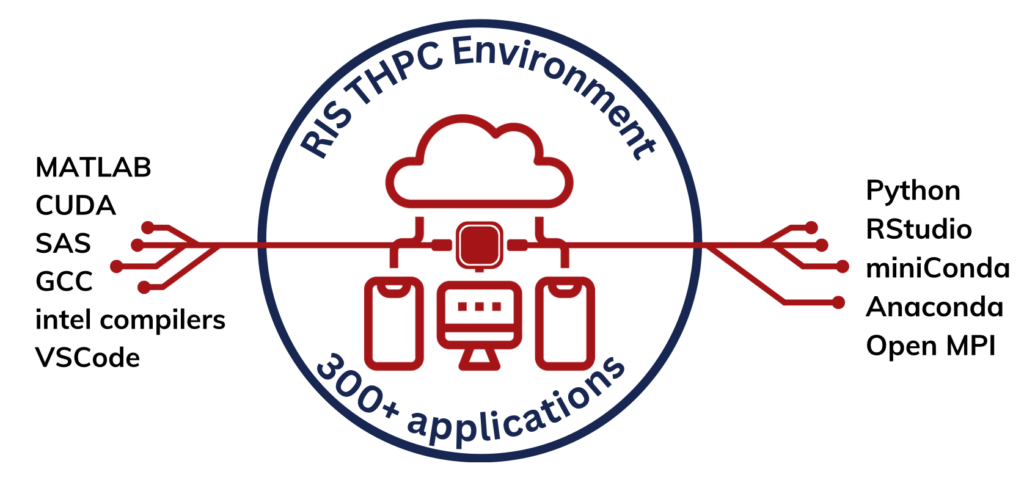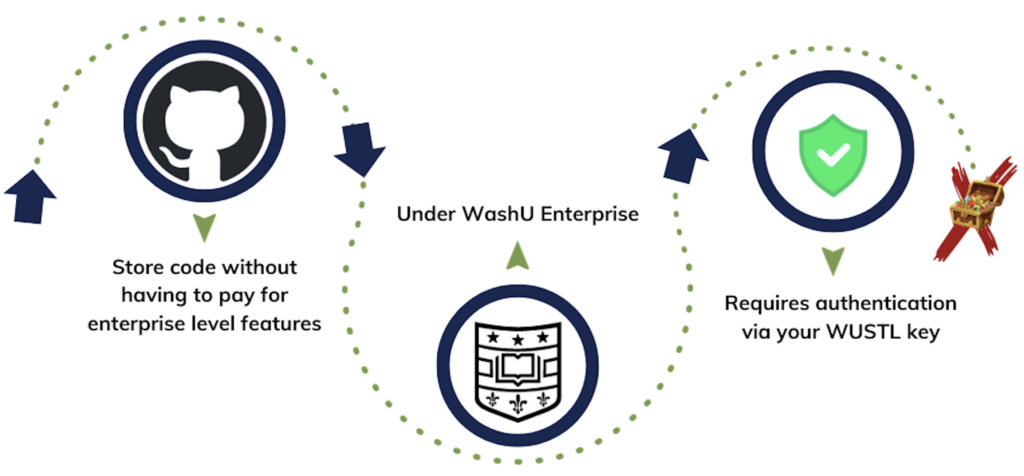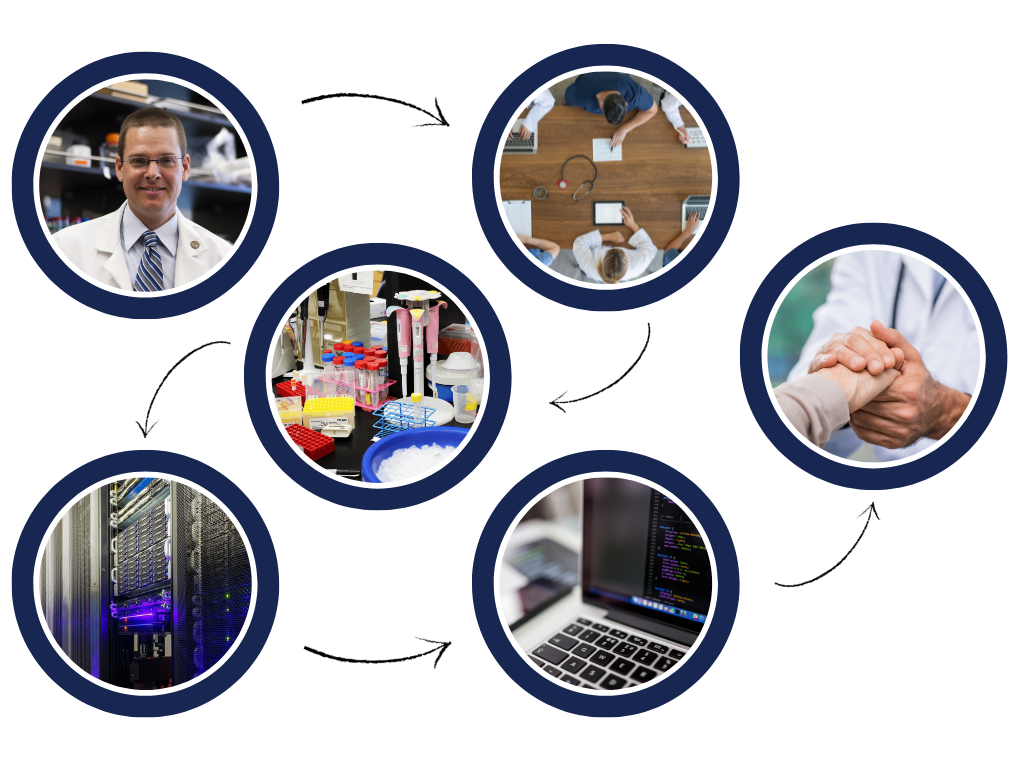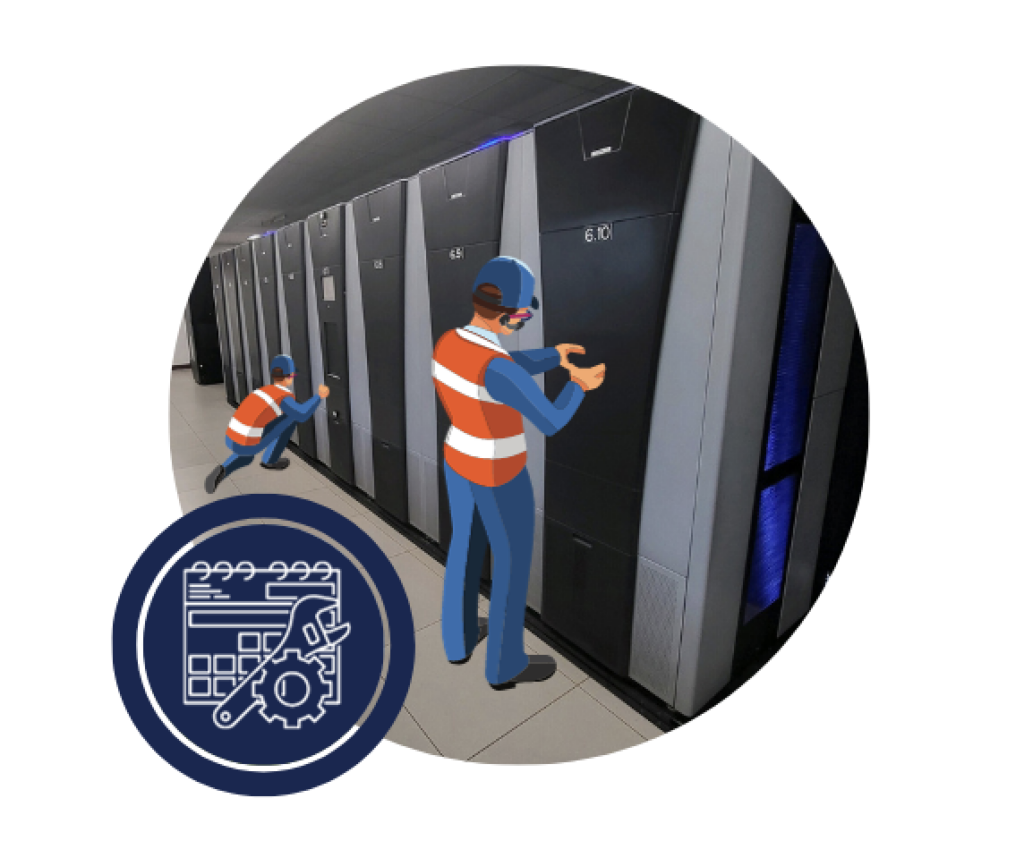High-Performance Communications – Nov. 7, 2023
Unveiling Innovation
Empower you workflow

The THPC (Traditional High-Performance Computing) Application platform provides access to hundreds of applications via the “module” interface typically used in the HPC cluster to access application libraries. This utility is now accessible from OOD via the RIS Desktop Application or command line.
Background: THPC is a scalable, sustainable, and flexible environment for RISto install, configure, test, and deploy applications using common package installers like EasyBuild and Spack within a Docker container. THPC was published and presented by Shin Leong at the PEARC23 conference.
Where GitHub meets WUSTL Enterprise, keeping your data secure

RIS has recently added a new service under the Application Platforms for provisioning or migrating a GitHub organization under the WUSTL Enterprise.
Why it matters: Researchers can store their code without having to pay for enterprise level features such as private repositories. Access to WashU Enterprise managed organization requires authentication via your WUSTL key and provides better management of WashU data assets and intellectual property.
Laying a new foundation

After one year of gathering requirements and executing RFPs and POCs, Qumulo was selected as the new vendor for the Storage Replacement Project. This new platform will provide twice the performance, reduce operational complexities, and include offsite backups and disaster recovery capabilities. General availability will take place in the Spring of 2024 and the transition will vary depending on the research group.
Exploring frontiers with computational power
Research @ WashU with David Spencer

By the numbers: RIS resources utilized
- 125TB active storage
- 75TB of archive storage
- Access to the general compute resource pool (5,000 CPU cores and 160 GPUs)
- 28 CPU and 2 “DRAGEN” condo servers
- Consumed 283,299 CPU core hours from 47,738 jobs
Background: Basic biology of how mutations and acute myeloid leukemia contribute to the development of cancer. Specifically genomics, how genes are regulated, and epigenetic modifications that regulate genes to understand processes in leukemia.
- The translational focus is through the use of genomic technologies to advance patient testing specifically for mutations in cancer.
Relevance: Having a better understanding of how cancer works to predict how patients will respond to therapies and finding pathways that could target new therapies to improve patient outcomes.
- If there is a way to improve the accuracy, speed, and precision of diagnostic testing using new technology there is always relevance in research.
Objective: Improve clinical management and care of cancer patients outcomes and lives while having a better understanding of basic science.
Measured success: Done through discoveries that are published in papers and the development of new innovations to test patients that can be used for clinical practice.
- Recently the Spencer Lab has developed a new sequencing essay for cancer and published a paper presenting the essay and was approved for reimbursement by Medicare.
Stay informed and inspired
Speeding up your data world

RIS engineers recently completed a project expanding storage1 with 1 petabyte of active storage and 120 terabytes of solid state disks, now supporting 28 petabytes of usable storage.
Why it matters: With this addition, disk reads and writes happen faster, speeding up your data world.
Keeping tFinity at its prime, always ready for your data

The Spectra Logic tFinity tape library infrastructure recently underwent its annual preventive maintenance keeping tFinity at its prime and always ready for your data.
Why it matters: The tape library is a high-capacity storage system used for storing, retrieving, reading from, and writing to tape cartridges. The tape library provides backups of the storage1 Active tier and provides space management tasks within the Archive tier storage.
Elevate Your Expertise
Join virtual workshops offered by Becker Library in collaboration with WUIT’s Research Infrastructure Services (RIS) designed to deepen your knowledge, refine your skills, and provide hands-on experience in a dynamic learning environment.
- Introductory Compute – Getting Started with Open On Demand (OOD) on February 19, 2025 10:00 am
- Introductory Compute – Getting Started with the Command Line on February 26, 2025 10:00 am
- Introductory Compute – Getting Started with High Performance Computing on March 5, 2025 10:00 am
- Introductory Compute – Getting Started with the RIS Scientific Compute Platform on March 26, 2025 10:00 am